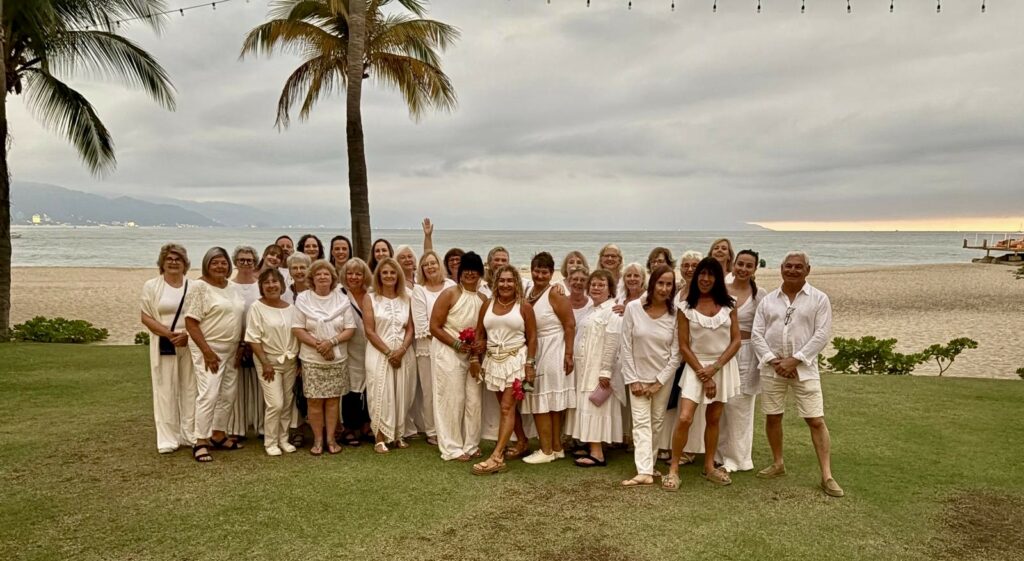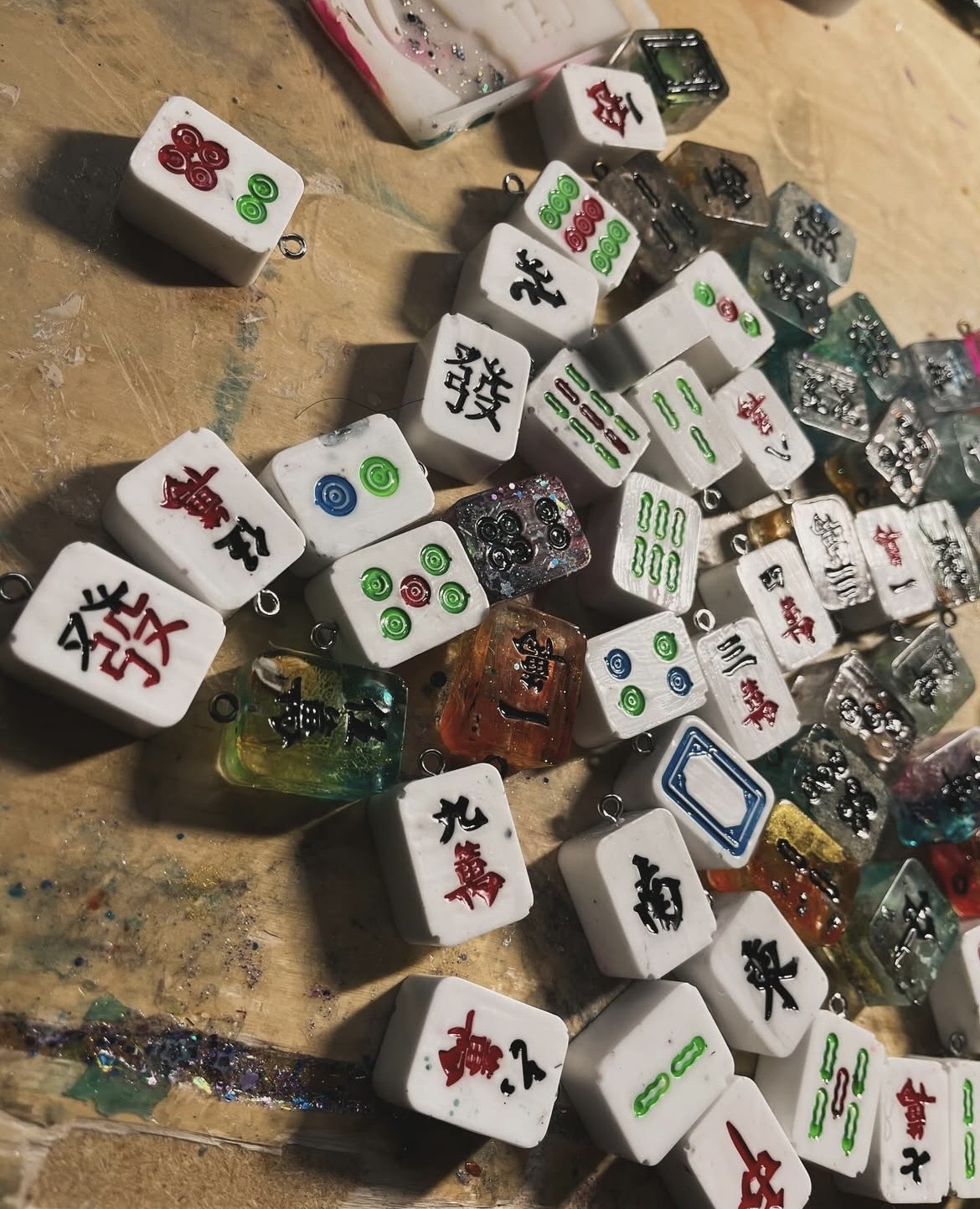Local News
RBC freezes client’s bank account by mistake – and keeps it frozen without explanation

By BERNIE BELLAN (June 14, 2024) What would you do if, one day, you tried to use your debit card to pay for something or to take a cash withdrawal – and the card didn’t work? But then, after contacting your bank to try and find out why that’s happening, you’re simply told your account is frozen – without any further explanation? And, only after deducing that the bank froze the account of the wrong individual, does the bank finally admit its error.
Such was the case recently with an RBC client who happened to be a relative of mine and who enlisted my help in trying to figure out why their account had been frozen by RBC.
On May 1 I was contacted by my relative asking for my help. They couldn’t understand why their debit card wasn’t working. They told me that their card had stopped working five days prior. (It should be explained this individual does not have sophisticated knowledge how to deal with a problem of this sort and they simply thought there was a glitch in using their card that would be corrected in short order by the bank.)
After several days of not being able to use their card, my relative explained, they had phoned RBC on April 30, but were not offered any explanation as to why their account had been frozen. They were told, however, that the matter was in the hands of a Vancouver branch of RBC. My relative was even further puzzled. They lived in Winnipeg and had never even been to Vancouver. What did their account being frozen have to do with a Vancouver branch of RBC, they wondered?
The day my relative contacted me, I told them to come over to my house and that I would try and get an RBC customer service representative on the phone to obtain some sort of explanation as to why their account had been frozen. After getting an RBC customer service representative on the phone and explaining who I was, I asked permission to listen in on the conversation between my relative and the RBC customer service representative. The customer service representative agreed to allow that, but during the course of the conversation they said they were not able to offer any information as to why the RBC client’s card had been frozen.
Both my relative and I were totally puzzled. RBC had frozen their account but would offer no explanation for why that had happened.
Later that day, however, my relative contacted me again to say that they wondered whether it was possible their account had been frozen by mistake because they had the same name as another relative? That other individual does live in Vancouver, so it began to make sense to me. I don’t know that individual well, but was able to contact them after getting their phone number from someone who knew them.
I phoned that person but just got their voice messaging, so I left a message asking them to call me. In a few minutes that individual did call me back and did say, not only that they had an RBC account, but that they had some legal issues related to debts (without going into specifics).
Immediately it occurred to me that my Winnipeg relative’s account had been frozen by mistake and that it was this Vancouver relative whose account was the one RBC had intended to freeze.
I phoned RBC back again and said that it was apparent RBC had frozen the account of the wrong individual. When I gave a detailed explanation of what evidently had happened, this time the RBC customer service representative told us to go down to the branch where my relative does their banking, where we would be met by a banking representative.
At the branch we met with a very nice RBC representative who said they had been brought up to speed as to what had happened. The bank representative explained that my relative’s account had been frozen as the result of a court order that had been issued in Vancouver to freeze the account of someone with the same name. The representative said that my relative could still not use their debit card to access cash, but the representative would be able to give them cash that they could use until their account was unfrozen.
At that time I suggested that what RBC had done was an outrageous mistake and that RBC ought to offer compensation to my relative. The branch representative said RBC was willing to waive bank fees for my relative for six months – apparently worth something in the order of $80 altogether.
The representative also gave me the name of the law firm that had applied for the court order that had led to the wrong account being frozen.
I contacted that law firm the same day and explained what had happened to a lawyer from the firm. The lawyer told me that the court order that had been applied for and had been issued by a court specifically gave the number of the bank account that was to be frozen. The lawyer sent me a copy of the bank order.
It was apparent that someone at RBC had made a huge mistake. They had ignored the order to freeze a specific account belonging to a specific RBC client and instead had frozen the account of a totally different RBC client who happened to have the same name!
When I discovered how egregious a mistake RBC had made – after reading the court order, I contacted the same RBC branch representative who had offered to freeze the fees on my relative’s account and said that my relative expected a lot more in compensation for such an outrageous mistake than simply having bank fees waived for six months.
On May 22, the RBC branch representative wrote in an email to me:
“Your request for compensation has also been escalated to our RBC client care department. They will reach out directly.”
On June 11 we contacted the branch representative to say that my relative had not heard anything from the client care department. On June 12 the branch rep wrote to me to say that an RBC client care representative had indeed attempted to contact my relative – both via phone and email. The phone number that was given in the email though was no longer in service and when we checked with our relative they said they hadn’t received an email.
On June 12 we emailed the RBC client care representative to ask them to attempt to contact our relative again. We did not hear back from that representative. To date our relative says they have not heard anything from the client care representative.
The upshot is RBC made a huge mistake and froze an account of the wrong individual – causing them distress and frustration, and only after we were able to figure out what had led to the wrong account being frozen, did RBC unfreeze the account. And, even though we asked for compensation over a month ago, no response has been received from RBC.
Update June 25: In a letter dated June 18, 2024 RBC client care representative Michelle Smith finally responded to the RBC client. In her letter, Ms. Smith wrote that the client “accepted the Branches (sic.) offer to waive the monthly fee on” her “RBC Advantage Banking Account for 6 months…for a total amount of $47.70…No further compensation will be provided.”
What Ms. Smith does not address in her letter, however, is the fact that when the RBC client attended her local branch to find out why her account had been frozen, she was told it was a result of an order by a BC court to freeze an account belonging to a client with the same name.
As noted in the story though, it was only after receiving a copy of the court order that had led to the freezing of the bank account from the lawyer who had applied for the court order did it become apparent that it wasn’t simply a mistake of freezing an account for the wrong person, it was also a mistake of ignoring the specific instruction on the court order to freeze an account with a specific number attached to it. It wasn’t just a mistake – it was gross incompetence on the part of an RBC employee. Yet Ms. Smith conveniently chooses to ignore that in her letter rejecting any further compensation to the client.
In her letter, Ms. Smith does invite the client to take the matter up with the RBC Client Complaints Appeal Office. If anything ensues from that we will update this post.
Local News
Second annual Taste of Limmud to feature Jewish dishes from around the world

By MYRON LOVE Many words in English have multiple meanings. Take the word “taste” for example. There is the literal meaning – the sense of taste; it can also mean sample – or preferences. It can be a noun or a verb.
In “A Taste of Limmud,” the term is used both in its literal meaning – as a sampling of Jewish dishes from different parts of the world, as well as a prelude to our community’s upcoming 16th celebration of Jewish learning and culture, which is scheduled for Sunday, March 15.
This is the second year for “A Taste of Limmud,” which is coming up on Thursday, February 19. The event will be held at the Shaarey Zedek and will feature Jewish dishes from Argentina, Yemen, Turkiye, Aleppo and Eastern Europe, as well as Israel .
“We sold out last year for A Taste of Limmud,” reports Raya Margulets, Winnipeg Limmud’s newly appointed co-ordinator. “We had 120 participants last year. I am hoping to have 150 this year.”
The 2025 debut of “A Taste of Limmud” was actually Margulets’ introduction to the Winnipeg Limmud co-ordinating team. Originally from Israel, Margulets’ first position with the Jewish Federation of Winnipeg was in 2022 when she was appointed Hillel director – after she had served as Hillel student president at the University of Manitoba.
She left her role with Hillel after having served as director for two years to participate in the ten-month online Israel 21c Digital Ambassador program, which is aimed at young people between the ages of 18 and 25. That program is part-time and casual, conducted remotely, intended to provide basic experience in digital communication and storytelling focused on everyday life in Israel.
“I spent a few hours a week working on simple digital content and social media, attended occasional online seminars, and participated in light collaborative projects,” Margulets reports. “The focus was on sharing positive, apolitical cultural stories rather than politics or advocacy.”
She was hired last year to oversee our first Taste of Limmud – as a special project that was funded by the Jewish Foundation of Manitoba.
She was appointed at the beginning of September as Limmud Co-ordinator, replacing Florencia Katz, the original co-ordinator, who stepped away after 15 years in the role. Katz remains a member of the Federation staff as Director of Education and Engagement. She also has a focus on the PJ Library program.
“Florencia was a great mentor and is still a big help to me,” Margulets says.
She reports that the upcoming 16th annual Winnipeg Limmud will once again feature a wide and eclectic range of speakers. “I can confirm that all of our community’s rabbis – as well as Rabbi Benarroch – will be among the presenters,” she notes. “Rabbi Benarroch will be coming from Israel and be here in person.”
Also confirmed thus far are Yaron Deckel, an Israeli journalist and broadcaster, as well as Haskel Greenfield, Distinguished Professor of Anthropology, and Winnipeg’s own Rimon Art Collective. Collective members include young Jewish artists Mishelle Aminov Kosonovsky, Yael Freifeld, Etel Shevelev, Halley Ritter, and Shan Pullan
Stay tuned for further updates as to other 2026 Winnipeg Limmud presenters on this website or go online to keep up to date or register for programs at limmudwinnipeg.org.
Local News
Sharon Delbridge’s annual health & wellness retreats in Puerto Vallarta have become popular with many Winnipeggers

By BERNIE BELLAN Over the years we have revisited stories from time to time – to catch up with individuals who have made a mark in this city and to see where their lives have taken them since the last time we wrote about them.
One such individual is Sharon Delbridge, the youngest daughter of Sol and Rachel Fink, and younger sister to Percy, Shayla (Posen), and the late Sheldon Fink (who died all too young at the age 57 in 2021).
Myron Love has written many times about Sol and Rachel Fink, who continue to amaze for their vitality – with Sol now 101 and Rachel having just turned 99.
As Sharon notes in an email sent to me, “My parents work out everyday. Not at Rady anymore. They do exercise at home & in their condo gym (200 Tuxedo) Move their bodies daily. My mom leads her and my dad daily in movement. It’s incredible.
“They have been a huge inspiration to all of us.”
Aside from the fact that the Fink family was a very musical family, their penchant for fitness is clearly something that rubbed off on Sharon, in particular.
My own wife, Meachelle, who was quite the fitness fanatic herself in her day (not that she’s been put out to pasture quite yet), profiled Sharon for The Jewish Post & News in 2015. In that story, Sharon explained how she came to be one of the most popular and best known fitness instructors, not only at the Rady JCC – where her classes in a wide variety of different areas, were – and still are, extremely popular, but at many other venues throughout Winnipeg.
Here’s part of what Sharon told Meachelle about how she came to teach so many different types of fitness classes:
“I’ve been into fitness my whole life. I come from a very musical family but also a family that always works out. When I was in my 20s I was teaching aerobics for several years as a part-time job while in university. When I had my three children (Milan, Jared and Cassie Ackerman) I ran a hand-painted clothing business in my home called Milan Designs, and I sold to ladies’ and children’s stores all over Canada.
“I was always working out and have loved fitness classes. I went back and got more certifications in my 40s. I’m certified to teach many specialties and have been actively teaching at the Rady for over 10 years. I now specialize in women’s boutique fitness: Zumba, Yoga and Barre classes. The three specialties blend beautifully together and I have a big following of people from all over Winnipeg that come to my classes. I have every Zumba certification that’s available: Zumba, Zumba Gold (for seniors), Zumba Toning (with weights), Zumba Aqua (in water), Zumba Step and Zumba Sentao (using steppers and chairs).
“I’ve taken many yoga certifications through the past 10 years and I’ve been teaching Barre classes, which are the latest and hottest classes for women. I’m always taking new training in these three specialties to continue to stay fresh and always have new and exciting things to present to my class. That’s how I stay unique in my field. I’m always learning and always developing my classes to be the best they can be. I spend tons of time finding the best music and choreographing.
“I truly feel that if you work out and look after your body, you will always have a positive outlook on life. Exercise is a huge healer mentally and physically. I have seen so many incredible changes in women that come to my classes. They have transformed their bodies and live happier and healthier lives.”
It was a year after Meachelle’s article about Sharon that Sharon and her husband, Darcy, began going to Puerto Vallarta for the winter. As Sharon noted, “I started teaching at a Yoga studio the first winter we were here in PV. It’s easy to meet people & build community when you’re teaching snowbirds from everywhere
I love sharing my love for fitness & yoga & moving our bodies.”
But, for six years prior to making Puerto Vallarta her and Darcy’s winter home, Sharon had already been conducting annual one-week health and wellness retreats in Puerto Vallarta. She has continued to conduct those retreats every year since. The most recent retreat was held from January 25-February 1 at the Fiesta Americana All Inclusive Resort.
Here’s how Sharon describes the purpose of those retreats:
“For over 15 years, my Health & Wellness Retreat has brought together women of all ages to reconnect, recharge, and celebrate movement, friendship, and balance. Hosted at a beautiful all-inclusive resort, guests can truly make the week their own holiday experience. While primarily a women’s retreat, many now bring their husbands or partners who are welcome to participate as much or as little as they choose.
“Throughout the week, we offer seven daily classes ranging from sunrise meditation and yoga to toning, Zumba, yin yoga, and our signature Aqua Zumba — which transforms into a high-energy, joy-filled pool party. Each evening, we gather for sunset yoga and take time to celebrate the beauty of the day together.
“The retreat blends wellness with enjoyment, allowing guests to indulge in the resort’s wonderful restaurants and social atmosphere while still feeling strong, energized, and revitalized. It’s a balanced, uplifting experience where participants leave feeling nourished in body, mind, and heart, often forming lifelong friendships. This year, we were proud to welcome 40 participants.”

In the picture accompanying this article you might recognize several Winnipeggers. I asked Sharon how many Winnipeggers were participants in this year’s retreat?
The answer, she said, was the majority (31) were from Winnipeg, while six were from Las Vegas, one from Ottawa and two from Edmonton.
The last two years, Sharon also noted, another well known member of the Rady JCC staff, Dona Watts-Hastings, who’s a physiotherapist, also a yoga and Pilates instructor, has joined Sharon in conducting the retreat. Sharon adds that Dona’s physiotherapy clinic is inside the Rady JCC. Dona also brings some of her clients to the retreat.
I wondered though, how active Sharon is in teaching classes when she’s back in Winnipeg? Does she never tire of teaching so many classes? I wondered.
Sharon’s answer was: “Yes, I’m still in Winnipeg half of the year and I will always teach at the Rady… Zumba, sculpt , yoga & barre class – also spinning if they need me to sub. . I teach at Assiniboine park and other gyms, too. Every morning I teach and often sub other classes. Busy all spring & summer.”
Whew! It’s tiring just reading about everything Sharon does. If you would like to find out more about next year’s health & wellness retreat in Puerto Vallarta and how you might be able to join up, contact Sharon at sharon@freshsoulfitness.com.
To watch a video of what a typical day at the retreat consisted of go to freshsoulfitness
Local News
Jess Pudavick: artist and business executive

By MYRON LOVE Jess Pudavick is a rare individual in that she combines careers as an artist and a business executive.
I first became aware of Jess last summer when she was one of the artists/craftspeople with a display table at the Gwen Secter Creative Living Centre’s annual garage and craft sale. What piqued my interest was her focus on incorporating resins in her art pieces.
Last week, while interviewing Ms. Pudavick at Super-Lite Lighting on Waverley – I learned much more about the multi-talented Ms. Pudavick.
While I have a passion for art,” she notes, “I was not interested in becoming a stereotypical starving artist.”
The daughter of Stuart and Beth Pudavick joined the company (which her father acquired in the early 1980s (along with partners Simon Simkin and Allan Hochman) 17 years ago. Her brother, Ray, also joined the company 10 years ago, Jess notes.
At Super-Lite, Jess’s title is Custom Homes Lighting Consultant. She works with builders, designers and contractors to build the lighting for the home, as well as to choose the right lights for the space. She also manages the company’s social media and website.
“I enjoy working with my dad and Ray,” she says.”I also love what I do at Super-Lite. It is similar to my feelings about my art. You don’t know the end result when you start. It is nice to see something being built from nothing and seeing the end result – and knowing how happy the client is in the end.”.
As an artist, the graduate of Brock Corydon’s Hebrew Bilingual Program, Shaftesbury Collegiate and the University of Manitoba, recalls that she started at a young age. “As a kid,” she says, “I was always doodling and drawing cartoons.”
While she has worked with several different artistic media, she observes that what she likes about creating art with resins is the challenge.
“Resin is a temperamental material,” she points out. “When you start a project, you have no idea what the finished product will look like.”
She explains that there are two ways to work with resin. You can put traditional resin in a mold and wait 24 hours for the resin to dry. Or you can speed up the process by using a UV style resin and exposing the resin to UV rays.
“I prefer letting the resin dry naturally,” she says. “I find I have more control over it.”
Her resin-infused art comes in many forms. She produces earrings and necklaces, candle holders and ashtrays, dice and computer keys. She has also created resin-infused mahjong and rummikub tiles and even sets of dominoes with paw prints. A popular item, Jess says, is a custom coloured/theme wedding set of dominoes.
“People love them,” she says of the dominoes tiles.
(The latter reflects her own passion for dogs for which she is often a foster “parent”. She notes that she also creates resin-infused memory keepsake urns for the ashes/hair or fur of beloved pets – a product that is gaining popularity.)
Then there is the resin-infused coffee table that has a place of honour in her own home. “With my love of plants and resin, my partner and I took our existing coffee table, added various clippings of my own plants and created a fun resin-sealed table,” she recounts. “It really looks cool. It is unique. it attracts visitors’ interest. Every time I look at it, I see something different.”
Jess reports that generally sells her works of art through craft sales and her Instagram page (@thejesso09) for between $10 and $30. Her major source of sales though, she adds, is through word of mouth.
But Pudavick avers that she doesn’t do her art with an eye to sales.
“I create for myself, not for the approval of others. I find it relaxing – a good way to reduce stress. It’s also rewarding to see that others want something you have created.”
She strongly believes that enjoying your work is an important element in being happy. Equally important, she notes, – both in business and art – is to have satisfied customers.


